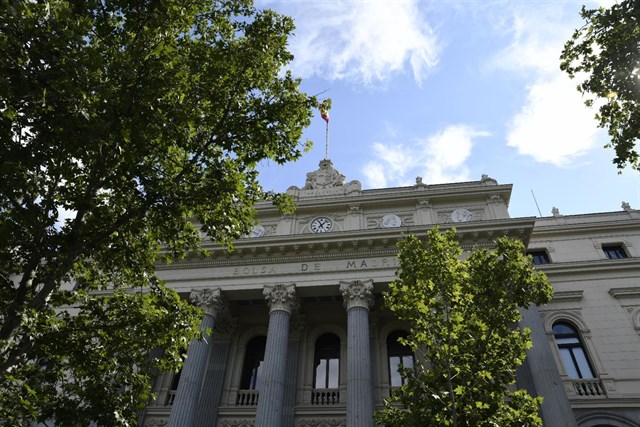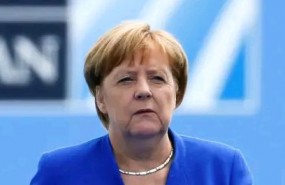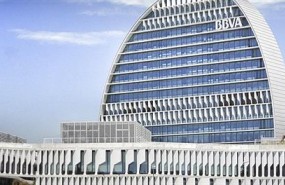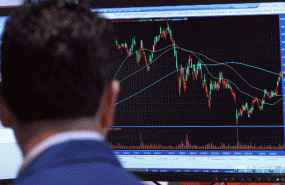
The Ibex 35 has started the week in green, after finishing the previous one with a fall of 2%. The selective has not been able to recover its key level of 9,470 points and is one step away from the 9,500. The Spanish index has risen by 0.54% to 9,468 points and it seems to overcome the Turkish crisis that hit it last week.
Despite ending in green, analysts agree that the Turkish crisis will remain very present in the minds of investors, as well as the new talks between China and the US on their trade war. In the best moment of the session, the Ibex has risen by 1%, marking a maximum of 9,512 points, which is where the base of the triangle passes (before support and now resistance) which has been the main reference in recent months .
ArcelorMittal has been the value that registered the highest increase with an advance of 2.62%, benefited by the "tranquility" of the trade war between China and the US. Both countries have begun negotiations that could wind down the geopolitical tension. It has been followed closely by Siemens Gamesa, which has risen in value by 2.6%.
Técnicas Reunidas and IAG have also risen strongly. Both companies have recorded advances of over 2%. Almost all the selective heavyweights have closed in green. Inditex has risen 0.65% a slight rise. The textile company, together with Banco Santander, which has risen 0.23%, have been chosen for the Fortune list of companies that are changing the world. They occupy the position 4 and 56, respectively.
On the other hand, BBVA and Iberdrola have been the 'blue chips' that have closed in negative. The entity chaired by Francisco González has dropped 0.44% to 5.4 euros. The bank still hit by the Turkish crisis continues to fall. BBVA owns almost 40% of the Turkish bank Garanti, which is why the lira crisis affects it. In addition, 15% of their income comes from the Ottoman country. Iberdrola has fallen slightly, by 0.06%.
However, Cellnex has been the value that registered the biggest drop, down 1.34%. Endesa followed, with a 0.51% drop. In the main board, this Monday we must talk about Berkeley Energy, which continues with its collapse. This session has fallen 11%.
OTHER MARKETS
The rest of the European stocks have also closed in green. Note that the German DAX 30 has risen 1.05%. For its part, the French CAC 40 has advanced by 0.7% and FTSE 100 by London, by 0.6%. Meanwhile, at the time of the closing of the European market, Wall Street quoted with a moderate earnings.
Once more, Atlantia makes the news. The concessionaire has dropped almost 9% after it was known that Italy will revoke the concessions to Autostrade, its subsidiary, after the collapsed bridge in Genoa killed 43 people. Atlantia has already accumulated a fall of almost 30% since last Monday, just before the collapse of the infrastructure in which the Autostrade concessionaire worked, of which it owns 88.06% of its capital.
"Fear of the contagion effect in the Eurozone will continue to be one of the top issues among operators, as there are still fears that banks and financial entities that have lent money to the Ottoman country will face a bankruptcy of the country that could extend into the 'Old Continent' ", says David Madden of CMC Markets. And in the Ibex this translates into pressure on the banking sector, especially on the most exposed of all its banks to Turkey, BBVA.
Early on Monday the German Ministry of Economy declared that the crisis suffered by Turkey in relation to its currency, the Turkish lira, is an additional pressure on the country's economy. It will also have to face the consequences of the tariffs imposed by the United States and the possibility of the United Kingdom leaving the European Union without an agreement with Brussels.
As for the Eurasian currency, the week opened with a boom of more than 0.5%, but in the early stages of the session it was turned around. It accumulates a fall of 1.5%, to 6.10 lira per dollar, after Friday "ended its brief honeymoon with the markets," according to analysts of TD Securities. The currency came to yield 8% after having experienced a recovery of 25% in the week, from the historical lows of August 13 at 7.24 lire per dollar.
Still in the foreign exchange market, the euro, which was badly hit by the lira crisis, and which dropped to 13-month lows last week, continues on Monday with the rebound that began on Friday and jumps to $ 1,446. The greenback, meanwhile, has been pressured by a round of profit taking by investors after the boom of last week, and the yuan takes the opportunity to continue its progress and advances by 0.3% until 6.8450 yuan per dollar, maximum one week.
TECHNICAL ANALYSIS
"The climbs of this Monday, quite shy by the way, are that. A simple rebound ", says José María Rodríguez, technical analyst at Bolsamanía. For the moment, you can even think of a simple and typical pull back to the new resistance zone, before support, that we had at the base of the triangle that was drilled hard on Wednesday. If we overcome the resistance, the following are at 9,600 and at 9,745 points, the last two bearish hollows. On the side of the supports, we have the annual minimums that were marked at the minimum of March (9.327). It is essential to respect this support because otherwise we do not rule out a new bearish whip towards the 8,900-9,000 points, which is where the following supports are located.
The deterioration is only observed in the Ibex and the transalpine index (FTSE MIB), but not in the "big ones" (Cac 40, Dax and Euro Stoxx 50). They have respected the minimums of the end of June, the last minimum of reaction, "explains the analyst, which leaves the door open to the possibility that as long as last week's minimums are respected they could build the figure back up if the next sessions / weeks exceed the highs of the end of July. "Another thing is what our Ibex wants to do, a lot flatter, as almost always", concludes José María Rodríguez.




